A special journey to deepen India-Vietnam ties
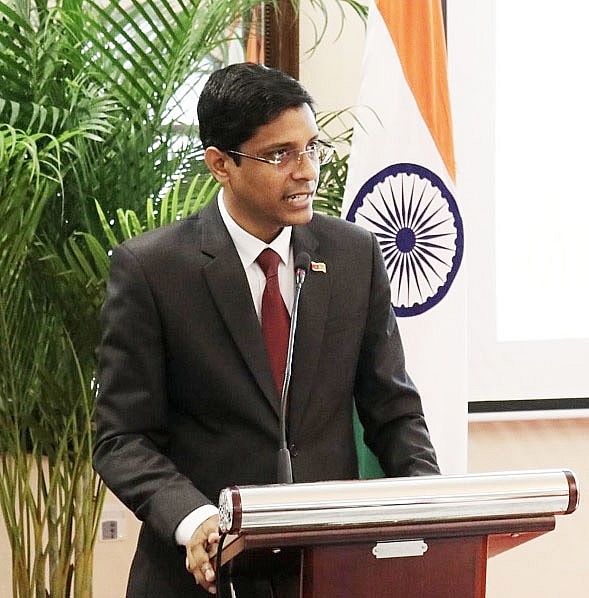 |
| Vaibhav Saxena, a leading Indian expert in Vietnam |
Could you share a few words about your journey in Vietnam as a leading Indian expert?
It has been an interesting journey for me in Vietnam and similar to India, overall I feel that the country has a blend of what is required for productivity. Business and life keeps me busy.
Challenges exist in all spheres when we talk about sustainable development but that is the key for betterment and the right approach can crack the ice to make progressive impacts both domestically and globally. Vietnam shines as Southeast Asia’s diamond and its geographical location adds more carats to enhance its global reflections.
The work culture, society, and city ambience is lively and is a signature mark for Asia having the most dynamic way of lifestyle and cultural richness adds a pinch of spiritual taste to life. Vietnam, similar to India and several other nations has sustained the family way of living and the population is vibrant.
I have been in this country for six years already. Although, when I arrived here I did not imagine that Vietnam transition in my life will keep me occupied to this extent.
I officiate as a foreign counsel at a top tier legal firm in the country, named Vietnam International Law Firm (VILAF). Apart from that, I also indulge in community service and try my bit to contribute towards the growth of India and Vietnam.
Time has brought several opportunities to my doorsteps and I believe in taking new challenges to make a positive difference and support human life. I think if you are geared to take an extra mile then Vietnam shall ensure victory, as it had inked historically. It is all about our perception on things and mindset. It is said in ancient Hindu texts "Vasudhaiva Kutumbakam" that is, the world is one family. Development is a constant process and learning has no ends, and if we sustain pace with excellence then the rest shall follow.
I also enjoy my life as an established business person in the country and try to channel my energy to make an adequate work-life balance. I will be launching a global scholarship in the coming time for the underprivileged children to support capacity building with our next generation.
How do you see India changing and what are the most important recent developments?
India today is ruled and shaped by the strong frame of democracy. Its governmental landscape has evolved and changed over centuries. India became independent 74 years back with the efforts of several leaders, and its people gained a voice in politics. Though we officially became democratic after the adoption of the Indian constitution, democracy is not new to India. There has always been a tradition of dissent, counter argument, dialogue, and deliberation. However, substantialisation of democracy can be best achieved by enabling the masses to improve their role in deciding matters.
However, this is not an easy task and requires a grassroots approach. Of late, this process of substantialisation of democracy is gaining ground and being institutionalised through the current government's active involvement with inclusive governance following the mantra of "Sabka Saath, Sabka Vikas and Sabka Vishwas" (with all, development for all and with everyone's trust).
For instance, the government of India this year has identified, for the highest civilian awards of the country (Padma awards, Padma Vibhushan, Padma Bhushan and Padma Shri, which were instituted in 1954), talented people who have been doing exceptional work at the grassroots but are lost in anonymity.
Democratising the process of selection for these awards, Prime Minister Modi himself urged people to nominate persons of their choice. He exhorted citizens to name talented people who have been doing exceptional work but are often overlooked. This represents a 2-pronged approach of democratising the process of selection on one hand by empowering the people in letting them play a participatory role in choosing their heroes and on the other reaching out to recognise the real unsung heroes of the society to exalt their morale for the common good while at the same time inspiring others for attaining excellence.
Indeed, it is for the first time that real unknown heroes have been chosen for the highest civilian awards which could be possible due to the government's visionary action. The benefits of this will trickle down deeper and deeper to the common man as time goes by. But for such action, one could not imagine a general profile of the 2021 Padma awardees including two Padma Shri awardees who have made history. Among these are transgendered barefoot environmentalist from Karnataka, Tulasi Gowda and transgender folk artist Manjamma Jogati to “elephant man” Dr. Kushal Konwar Sarma, and orange seller and school builder Harekala Hajabba. The other who made history was 102 years old Nanda Prusty for his outstanding contributions to the field of education.
Credit must go to the government of India for the People’s Padma to change the way India thinks. It is a positive revolution for democracy and a landmark move by the nation that the award goes to the deserving and not to the demanding. The people have spoken and the government's acknowledgement of the real contributors and societal heroes has taken India to a different level, both domestically and internationally.
Thus, India is no exception to the enormous social transformation occurring in all societies around the world in the midst of the rapid changes brought about by the revolution in IT and the growing globalisation. The changes in India are not only reflected in numbers. There has been a profound shift in politics and policy, in diplomacy and digitisation, in arts and sports. India has changed remarkably in a number of ways and some of these changes affect not just the country’s 1.4 billion people – but the rest of the world too.
The roots of Indian-Vietnamese relations go deep in all fields. What economic opportunities can you see between the countries?
The world is now one big village due to rapid globalisation, unlike 50 years ago when travelling to or living in different parts of the world was considered a challenge. Yes, there are linguistic barriers but the basic rule when living in a globalised world is to handle things with patience and stay receptive to different views/ways of life.
India has excelled in the past and now it has a key role in world economics and politics. However, since India has a larger land area than several Southeast Asian countries, it has its own challenges to meet with a vast population and managing a giant population means controlling a major chunk in the consumer market and having the ability to drive global market trend with huge import-export figures.
Indian industry has developed rapidly and the human resources capabilities in India offer a cost-effective and high talent pool which has contributed to India’s progress. The young India is the backbone of the new India which is dynamic, powerful, and global in vision.
Now, we see that Indian players have sighted Vietnam as a suitable investment destination. The current Modi-led government in India brought a skyrocketing boost for India around the globe and an opportunity for India to not only look East but act East with a perfect blend market approach. It is time for India to regain its historical strength with self-reliance being one of the oldest and culturally rich civilisations on this planet. We will see a different India and a much advanced Vietnam growing together at a swift pace.
Indian and Vietnamese relations have been growing by economic, commercial, and strategic engagements in the past few years. India ranks among the top 10 trading partners of Vietnam.
By 2020, both countries aimed to clock trade worth $15 billion with trade growing sharply from around $5 billion to $13.7 billion between 2016 and 2019.
Several major enterprises from India such as Adani Group, Mahindra’s, SRF, and Tata also seem to be keen on investing in Vietnam.
The foreign missions of both countries are devoted to implementing economic and geopolitical diplomacy at large. We have seen that the diplomatic channel has transformed itself to make the private sector its co-pilot to drive the economic growth for both countries.
On investment, countries are trying to facilitate their home companies to explore possibilities in renewable energy and IT. The biggest advancement during the pandemic phase has been the market entry of HCL into Vietnam. HCL keeps high ambitions to support Vietnam to become the next-generation IT hub of Southeast Asia.
On the other hand, Vietnam’s FPT Corporation, a sizable high-tech company, confirmed its ambitions to invest in India. Such bilateral business ventures will help integrate both the economies and maintain a balance for future growth.
As said by Shri. Pranay Verma, Indian Ambassador to Vietnam, India's population of 1.4 billion offers a large and potential market for Vietnamese companies to invest in.
In September 2021, Indian billionaire Shri Gautam Adani indicated his interest in investing or mergers and acquisitions with a handful of Vietnamese enterprises, particularly in the energy industry.
In particular, the chairman of Adani Group said that acquiring a thermal power plant, a seaport, or an airport in Vietnam is on the cards. This could potentially elevate India-Vietnam ties to another level.
Vietnam is good and alongside other nations, it is getting better with time. I think every country is rich in its own way and it depends on what we choose to focus on.
Our historical ties are deeply rooted, our present is blooming, and the future shall be fruitful. We are both promoting peace with mutual development, and we have a way to go.
What the stars mean:
★ Poor ★ ★ Promising ★★★ Good ★★★★ Very good ★★★★★ Exceptional
 Tag:
Tag:
Related Contents
Latest News
More News
- Citi economists project robust Vietnam economic growth in 2026 (February 14, 2026 | 18:00)
- Sustaining high growth must be balanced in stable manner (February 14, 2026 | 09:00)
- From 5G to 6G: how AI is shaping Vietnam’s path to digital leadership (February 13, 2026 | 10:59)
- Cooperation must align with Vietnam’s long-term ambitions (February 13, 2026 | 09:00)
- Need-to-know aspects ahead of AI law (February 13, 2026 | 08:00)
- Legalities to early operations for Vietnam’s IFC (February 11, 2026 | 12:17)
- Foreign-language trademarks gain traction in Vietnam (February 06, 2026 | 09:26)
- Offshore structuring and the Singapore holding route (February 02, 2026 | 10:39)
- Vietnam enters new development era: Russian scholar (January 25, 2026 | 10:08)
- 14th National Party Congress marks new era, expands Vietnam’s global role: Australian scholar (January 25, 2026 | 09:54)

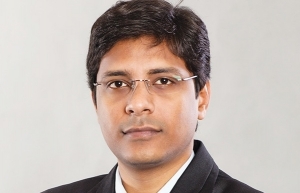
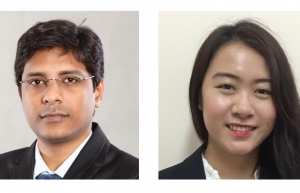
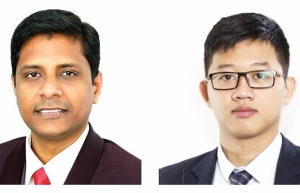
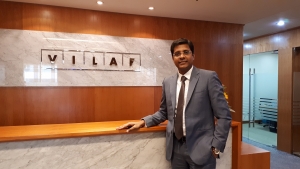
























 Mobile Version
Mobile Version